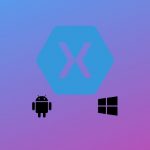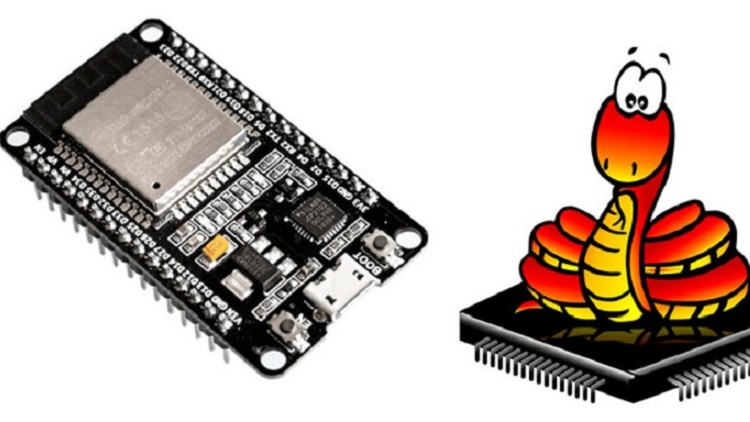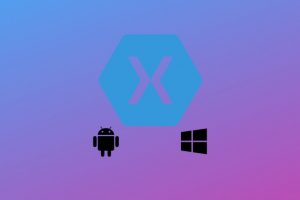MicroPython: Programming Hardware in MicroPython – Freecoursesite
Learn MicroPython easily and unleash the power of MicroPython coding using Real life examples and Practice activities
What you’ll learn
MicroPython: Programming Hardware in MicroPython – Freecoursesite
-
Explore the Boards available that supports MicroPython
-
Use different ways to execute MicroPython codes
-
Write MicroPython code that takes input and produces output
-
The history MicroPython
-
Why using MicroPython, why not using any other language?
-
Differentiate between MicroPython and other programming languages.
-
MicroPython hardware and different hardware that you can use and they interact easily with micro python coding.
-
MicroPython workflow in detail.
-
How to set up micro python on your board. Whatever the Microcontroller board that you have chosen or whatever the board that you have at hand.
-
Creating and deploying your code and testing it out.
Requirements
-
Basic Knowledge of Digital Electronics
Description
>>>Learn MicroPython easily and unleash the power of MicroPython coding using Real-life examples and Practice activities. <<<
Welcome to this course.
MicroPython is one of the most popular and fastest-growing programming languages in the world. It’s used for all sorts of tasks including web programming and data analysis, and it’s emerged as the language to learn for machine learning. That popularity means that MicroPython developers are in demand and MicroPython programming jobs can be lucrative. – freecoursesite
These are all great reasons to learn how to program in MicroPython. This course will provide an introduction to use MicroPython to build an app that can be a starting point for becoming a MicroPython programmer.
Are you interested in the Internet of Things, home automation, and connected devices? Have you ever wondered what it would be like to build a Microcontroller Based Project or even your own robot? If so, then you are in luck. MicroPython can help you do all of these things and even more.
Now, as you know, automation and the Internet of Things are among the most trending topics nowadays, and knowing about Python, Home automation, and the Internet of Things is a must for any embedded system engineer.
In this course, we will talk about the history of micro python and the differences between MicroPython and other programming languages, the hardware you must use to build devices using MicroPython, and the process to step up code and deploy your own MicroPython project.
Why You Should Learn MicroPython?
- Easy to learn.
- Supports quick development.
- Cross-platform.
- Open Source.
- Extensible.
- Embeddable.
- Large standard library and active community.
- Useful for a wide variety of applications.
- Wide Microcontroller Support.
You’ll learn how to:
- Explore the choices available to run MicroPython
- Use MicroPython to execute codes
- The history MicroPython
- Why using MicroPython, why not using any other language?
- Differentiate between MicroPython and other programming languages.
- MicroPython hardware and different hardware that you can use and interact easily with micro python coding.
- MicroPython workflow in detail.
- How to set up micro python on your board. Whatever the Microcontroller board that you have chosen or whatever the board that you have at hand.
- Creating and deploying your code and testing it out.
At the end of this course, you can create Innovative Projects using MicroPython. The only thing that you need to do is THINKING, WIRING & CODING. You’ll have no idea about Python home automation and the Internet Of Things will be changed.
Who this course is for:
- Anyone interested in Programming Hardware in MicroPython
- Who anyone interested in MicroPython hardware and different hardware that you can use and interact easily with micro python coding.
- Anyone interested in How to set up micro python on your board. Whatever the Microcontroller board that you have chosen or whatever the board that you have at hand.
- Anyone interested in creating and deploying your code and testing it out using MicroPython
- Python Geeks
- Anyone interested in one of the most requested Programming languages in the world right now
- Engineering Students – Electronics, Electrical & Computer Science
- High School Science Students
- Electronic Geeks, Hobbyist & Art Students
- Embedded Systems Geeks
- Microcontroller Geeks
- Last updated 11/2020
MicroPython: Programming Hardware in MicroPython – Freecoursesite
Content From: https://www.udemy.com/course/micropython-micro-python-introduction-to-programming-hardware-python/
Download Now











Add Comment